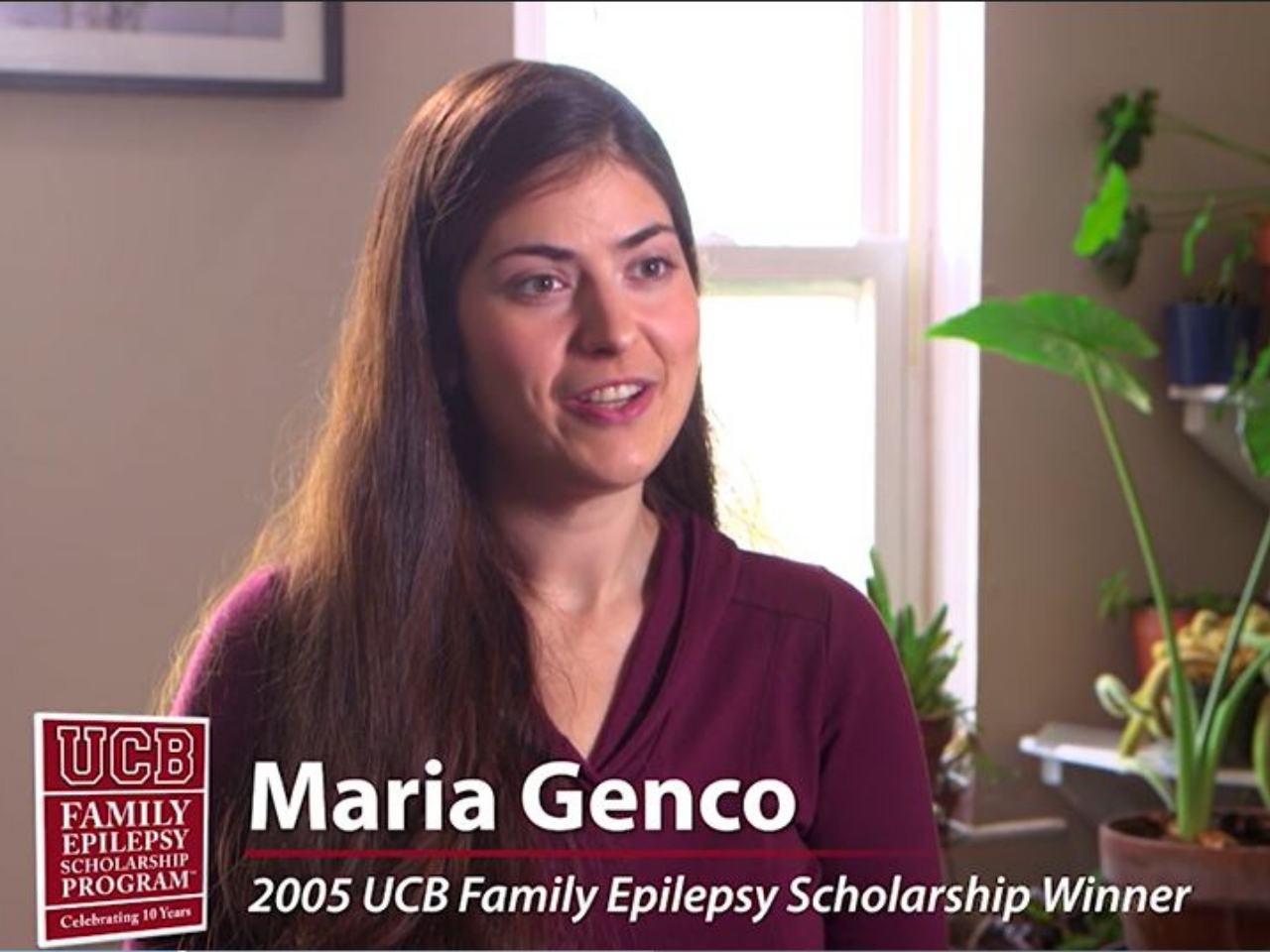
As one of the first winners of the UCB Family Epilepsy Scholarship, Maria reflects on the goals, choices, and experiences that have shaped her ever-evolving career in science.
"I’ll never forget the high school winter break I spent keeping my mother company in the hospital while we took turns reading chapters of "Tuesdays with Morrie" out loud. In fact, I remember many school vacations spent wandering around hospitals and sitting in doctors’ waiting rooms as my parents tried to balance the complex needs of my younger sister, who has intractable epilepsy, with the needs of me and my two younger brothers.
To others, this might seem strange. For my family, this was normal.
But the older I got, the more frustrated I became with the limits of treatment options for my sister and how this, in turn, affected my family. Despite the countless doctors visited and different treatments tried, little helped my sister, and nothing that did had a long-term effect. I wanted to do something, but I didn’t know what I could do—until I had the opportunity to follow a physician–scientist around for a day in middle school. There in his laboratory, wearing a white lab coat, looking at microscope slices of rodent brains, I began to realize the potential of basic scientific research.
It wasn’t long before I decided to pursue a bachelor’s degree in neuroscience with the aim of becoming a scientist. I wanted to work at the laboratory bench, where I thought the most interesting and hopefully groundbreaking research was being done to find treatment—maybe even a cure—for neurological diseases and disorders like epilepsy.
My senior year in college, with grad school on the horizon, I was on the lookout for scholarships. That’s when my mother came across the UCB Family Epilepsy Scholarship. I applied and was lucky enough to win the first year it was offered. Interestingly, my youngest brother would apply and win the scholarship exactly 10 years later.
After a stint working in a lab, I was accepted into a PhD program in neuroscience and worked at the bench, studying fruit fly larvae and asking some of the most basic questions we still have about how neurons function. But after seven years, I realized basic research wasn’t for me—I wanted and needed to use my scientific knowledge in a more applied setting. This led me to my current position, where I use my scientific training to help pharmaceutical companies make informed decisions about the most effective ways to allocate money and effort when bringing new therapies to their patients.
I always knew I wanted to make an impact for people and their families suffering from the consequences of debilitating medical issues. Although I didn’t quite know what route I was going to take, the experience and frustrations I had growing up have helped me define the things that are most important to me. And no matter where this adventure leads, if I can continue fighting for my sister, my family, and other families like mine, it will be worthwhile."
Choose Country
- Global Site – English
- Australia – English
- België – Engels
- Belgique – Anglais
- Brasil – Português
- България – Български
- Canada – English
- Canada – Français
- 中国 – 中文
- Česká Republika – Angličtina
- Danmark – Engelsk
- Deutschland – Deutsch
- France – Français
- España – Español
- Ελλάδα – Ελληνικά
- India – English
- Ireland – English
- Italia – Inglese
- 日本 – 日本語
- Казахстан – ағылшын тілі
- 한국 – 한국어
- Luxembourg – Anglais
- Luxemburg – Engels
- Magyarország – Angol
- México & Latinoamérica – Español
- Nederland – Engels
- New Zeeland – English
- Norge – Engelsk
- Österreich – Deutsch
- Polska – Polski
- Portugal – Inglês
- România – Engleză
- Россия – Русский
- Slovensko – Anglický
- Suomi – Englanti
- Sverige – Engelska
- Schweiz – Deutsch
- Suisse – Français
- Türkiye – Türkçe
- Україна – Англійська
- United Kingdom – English
- U.S.A. – English



